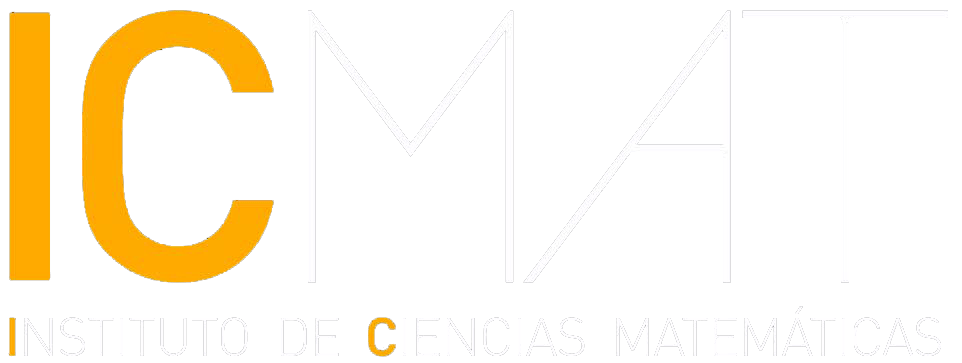
Rafael Larco Herrera Archaeological Museum in Lima, Peru. CC BY-SA 3.0, Claus Ableiter
Laura M. Iraola (ICMAT)
Between 2500 BC and the Spanish conquest, the Inca Empire used a system of quipus (knots, in Quechua) to transmit a variety of information: numbers, stories, orders…, from one point to another in the territory. It could also be encrypted, to send secret messages to the Inca, for example. The people in charge of this task were specialists known as quipucamayoc (guardians of the knots), who belonged to the nobility. This is one of the professions of the protagonist of the novel El Espía del Inca (Alfaguara, 2022), signed by Peruvian writer Rafael Dumett, who has brought this ethnomathematical system back into the cultural limelight.
This Friday, June 28, at 7:00 p.m., Dumett will take part in a scientific-literary discussion organized by the ICMAT at the Cervantes y Compañía bookstore (Calle del Pez, 27, Madrid): “Quipus: matemáticas y relatos incas” (Quipus: mathematics and Inca stories). Joining him will be Concepción Reverte Bernal, honorary collaborator of the University of Cadiz, who will contribute her vision as a philologist and specialist in Spanish-American literature, and Manuel de León, CSIC research professor at the ICMAT.
“Without a doubt, the quipus constituted a complex system that made it possible to easily store data of all kinds: administrative (demographic censuses, tax control), calendrical, genealogical, historical, religious…”, explains De León. This system consisted of a main string without knots, to which another series of strings with knots were added. The numbers were represented following a decimal positional system, like ours. They could also transmit other information depending on the color of the string. However, the quipus were not used to make calculations, for that, the Incas had an instrument similar to an abacus called yupana.
A peculiarity of Dumett’s book, which provides a wealth of information about the Inca culture and way of life, is that the quipus are present not only in the content, but also in its structure. “The novel is conceived as a giant quipu,” De León points out. “In addition, the protagonist is a man with a great capacity for calculation and, therefore, very useful for the emperor’s purposes,” he adds.
About the participants
Rafael Dumett was born in Lima (Peru) in 1963 and currently resides in San Francisco (USA). He studied Linguistics at the Pontificia Universidad Católica del Perú and theater at the Teatro de la Universidad Católica de Perú. He also studied theater at La Sorbonne, Paris. He has written the plays AM/FM 1985), Números reales (1991), El juicio final (1997) and Camasca (2019), winner of the British Theatre Award Let’s put your play on stage. And for the cinema, the feature film Both (2005). El espía del Inca, published by Alfaguara in 2022, was his first novel. In 2023 he published El camarada Jorge y el Dragón (Comrade Jorge and the Dragon) in the same publishing house.
Manuel de León is a research professor of the Consejo Superior de Investigaciones Científicas (CSIC) at the ICMAT and a member of the Real Academia de Ciencias Exactas, Físicas y Naturales. He is an expert in the area of geometric mechanics, a discipline that combines geometric methods with system dynamics. De León maintains an active role within the mathematical community beyond research: training of researchers, organization of events and international networks, editing of scientific journals, publication of research monographs and dissemination. In this last facet, she wrote about El Espía del Inca: “It is monumental for its length (more than 900 pages), for the complexity of its structure and for the quality of its structure, which will undoubtedly make it a cult novel in the coming years”.
Concepción Reverte Bernal is currently an honorary collaborator of the University of Cadiz. She has been a professor at the University of Piura, Peru, and holds a degree in Romance Philology and a PhD in Hispanic Philology from the University of Navarra, Spain. From 1983 to 2023 she has been a professor of Hispanic American Literature at the University of Cadiz. She is the author of several books on Hispanic American literature and, specifically, Peruvian literature, one of which is La época colonial en la narrativa peruana contemporánea (Pamplona, EUNSA, 2020). Organizer of international congresses, whose proceedings books she has prepared, one of them was the XXXIX Congress of the International Institute of Ibero-American Literature (IILI), held in Cadiz in 2012 and published on CD as Diálogos culturales en la literatura iberoamericana (Madrid, Verbum, 2013). She is also the author of numerous articles, communications in conference proceedings or book chapters on Latin American literature and theater. About El Espía del Inca, she wrote: “To these first peculiarities, its initial publication in digital form to be published later on paper and being the incursion of a playwright masterfully converted into a narrator, will be added others, which underline the originality or singularity of this novel, which makes it one of those that stand out, within a group of contemporary Peruvian fiction stories, that evoke the colonial past”.
This content has been automatically translated. The original text may differ slightly.
